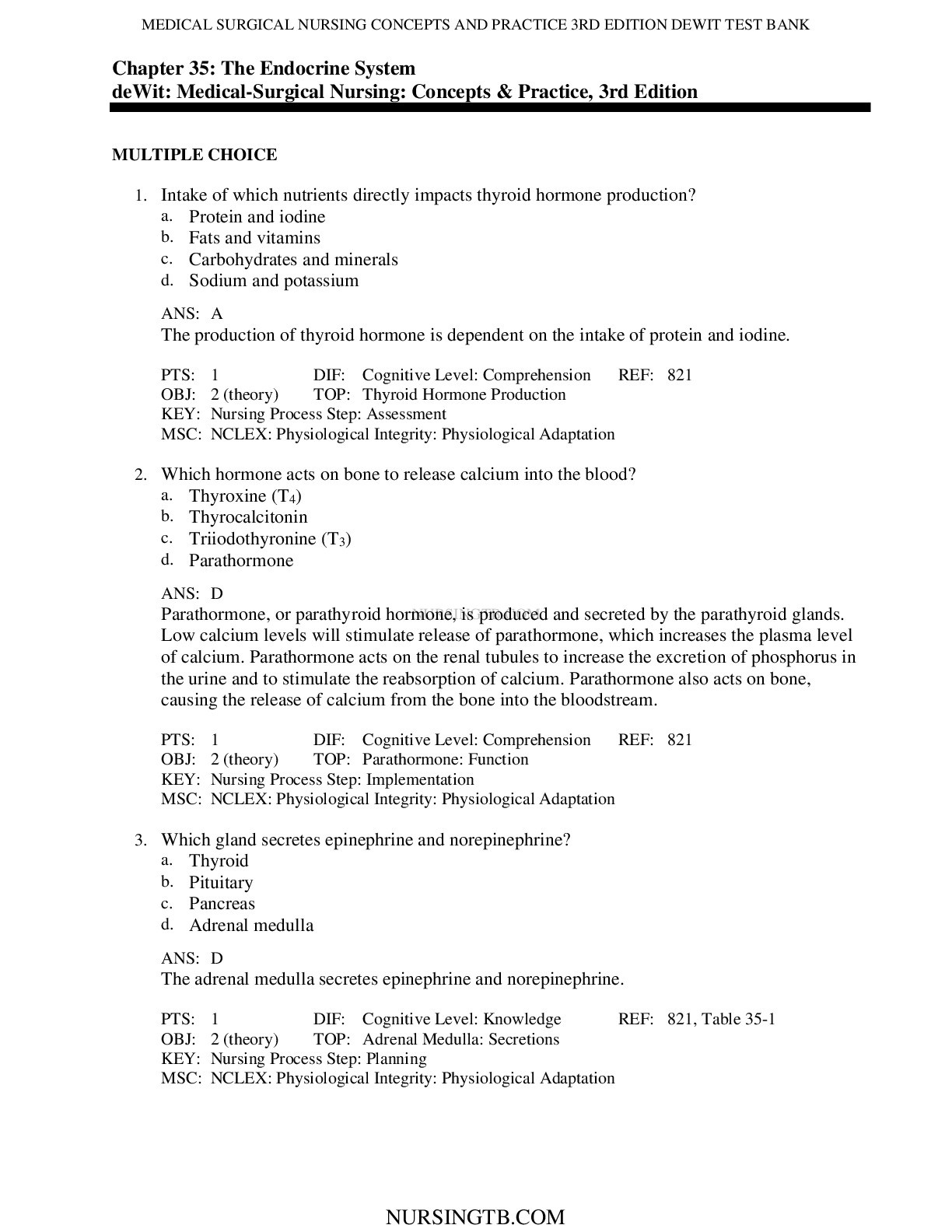All study resources > NURSING 2239 : c35. (Nursing)
NURSING 2239 : c35.
1. Intake of which nutrients directly impacts thyroid hormone production?
a. Protein and iodine
b. Fats and vitamins
c. Carbohydrates and minerals
d. Sodium and potassium
2. Which hormone acts on bone to release calcium into the blood?
a. Thyroxine (T4)
b. Thyrocalcitonin
c. Triiodothyronine (T3)
d. Parathormone
3. Which gland secretes epinephrine and norepinephrine?
a. Thyroid
b.
...[Show More]
1. Intake of which nutrients directly impacts thyroid hormone production?
a. Protein and iodine
b. Fats and vitamins
c. Carbohydrates and minerals
d. Sodium and potassium
2. Which hormone acts on bone to release calcium into the blood?
a. Thyroxine (T4)
b. Thyrocalcitonin
c. Triiodothyronine (T3)
d. Parathormone
3. Which gland secretes epinephrine and norepinephrine?
a. Thyroid
b. Pituitary
c. Pancreas
d. Adrenal medulla
4. Where in the body are mineralocorticoids and glucocorticoids produced?
a. Adrenal cortex
b. Adrenal medulla
c. Pancreas
d. Hypothalamus
5. Which gland secretes androgenic hormones?
a. Adrenal cortex
b. Hypothalamus
c. Pancreas
d. Pituitary
6. Which action describes a function of aldosterone?
a. Conserve water
b. Excrete sodium
c. Constrict blood vessels
d. Excrete phosphorus
7. Which corticoid counteracts the inflammatory response?
a. Thyroxine
b. Cortisol
c. Insulin
d. Norepinephrine
8. Which gland is the only gland that is both an endocrine gland and an exocrine gland?
a. Thyroid
b. Hypothalamus
c. Pancreas
d. Parathyroid
9. Which statement accurately describes endocrine glands?
a. Endocrine glands release secretions directly into the bloodstream.
b. Endocrine glands release secretions via a duct into the bloodstream.
c. Endocrine glands hold secretions in a reservoir until needed.
d. Endocrine glands can produce constantly for body needs.
10. The nurse is caring for a patient who has been experiencing infertility. Which statement
indicates that the patient understands the impact of inadequate luteinizing hormone (LH)
levels?
a. “Since luteinizing hormone maintains my secondary sex characteristics, low levels
explain my small breasts.”
b. “Low levels of luteinizing hormone cause the swelling I experience during my
menstrual cycle.”
c. “Low levels of luteinizing hormone cause my menstrual cycle irregularities.”
d. “Since luteinizing hormone stimulates ovulation and progesterone production, low
levels could cause infertility.”
[Show Less]
